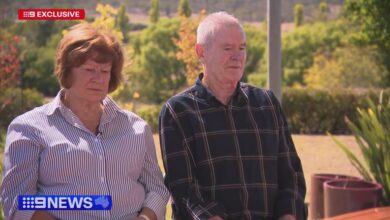‘Dumbing down’ of child health workforce under fire
Proposals to remove midwifery qualifications for child and family health nurses have attracted widespread criticism. Linda Belardi reports.
Child and family health nurses have slammed recommendations by the Productivity Commission to remove midwifery qualifications from their training.
Nurses predominantly in Victoria, where midwifery qualifications are mandatory, said the proposals undermine the quality of the services they deliver and the professionalism of the workforce.
Since handing down its draft report on the early childhood workforce at the end of June, the commission has received several submissions from nurses critical of its recommendations.
Last month nearly 200 child and maternal health nurses from the ANF Victoria branch met to discuss their concerns and to prepare a detailed response to the report. The union has also met with the commissioners to air their concerns in person.
Paul Gilbert, ANF state secretary told Nursing Review the report failed to recognise the state's integrated approach to child and maternal health.
The PC's recommendations are designed to remove additional barriers to workforce entry, in the context of a shortfall of nurses.
Australia has experienced a 30 per cent decrease in the number of child and family health nurses across a five-year period, from 6800 in 2003 to 4600 in 2008. This is despite Australia's birth rate increasing by 16 per cent in that period, according to the Australian Institute of Health and Welfare.
However, nurses say the recommendation would have a significant impact on the state's high quality standard of maternal care.
In Victoria, maternal and child health nurses are employed by Local Councils to whom all births must be notified within 48 hours. Nurses with mandatory qualifications in nursing, child health and midwifery consequently carry out an initial home visit and regular consultations to assess the health of the mother and child. Midwifery is therefore a mandatory qualification, as set out in Victoria's child and maternal health service program standards.
In other jurisdictions, contact with a child and family nurse is voluntary and initiated by the mother.
In its submission to the Productivity Commission's report ANF President, Lee Thomas said Victoria should be allowed to maintain its current qualification requirements and standard of care.
The ANF said the high qualification standard is not a deterrent for young nurses to enter the workforce.
In submissions to the PC, Victorian nurses described the recommendation as a "retrospective" step that would expose families to uninformed practice with legal and safety ramifications.
Joanne Fittock, President of the Victorian Association of Maternal and Child Health Nurses, said it was concerned by a lack of sufficient detail and evidence to support many of the PC's recommendations.
Fittock said the loss of this qualification would decrease the remuneration and attractiveness of the maternal and child health nursing specialty and would potentially lead to industrial action by nurses in the future.
"Victorian maternal and child health nurses are determined to maintain their qualifications because they strongly believe that all of their qualifications are essential in providing the best possible support to families to achieve the best possible outcome for children and all of their qualifications are required to competently deliver the Victorian service model."
Any attempt to reduce the education of this workforce would compromise the highly respected and world-recognised system of maternal and child health services, she said.
Post-natal complications and the initial health of the mother were more easily recognised if maternal and child health nurses had qualifications in midwifery.
Fittock said Victoria's ability to recruit nurses into this speciality was not compromised, despite the higher qualification. Courses in Victoria were also fully subscribed.
"Opponents of the requirement for midwifery as a pre-requisite to child health nursing often cite the expense and length of time needed to complete the necessary qualification. However, removal of the requirement of midwifery in other jurisdictions has not eventuated in an increase in the number of nurses completing the course and filling the workforce shortage."
Fittock said there is no evidence to suggest that removing the midwifery qualification would guarantee more nurses or increase child health checks.
Despite having the most stringent educational requirements, Victoria also has the highest number of children receiving health checks in Australia. Submissions cited Victoria's record of 99.8 per cent of children receiving a check after birth. 80-90 per cent received checks during the first year of life and 63 per cent receiving a three-year check. Several submissions also raised the issue of the limited consultation undertaken by the commission, particularly with Victorian maternal and child health nurses.
"Given the universal nature of the Victorian Maternal and Child Health Service, and many formal links with other childhood services it has been disappointing that public sittings were not held in Victoria," said the state association.
The ANF Victoria branch said there was also an increasing body of evidence to demonstrate that Victorian children experienced better health outcomes than children in other states. A report from the Australian Institute of Health and Welfare, Headline Indictors for Children's Health, development and wellbeing showed that Victorian children were faring better than their interstate counterparts in four out of 11 headline indicators, and performing at levels either better than - or similar to - the national average in the remaining seven indicators.
The submission from the Australian Association of Maternal Child and Family Health Nurses, said this nursing specialty was older than the Australian average and education programs were failing to produce graduates in numbers required to supply workforce demand.
However it said the issue of midwifery registration for child health nurses was a "politically sensitive issue," as nurses and midwives were separate professions.
The National Nursing and Midwifery Board has not legislated the postgraduate qualification as a requirement so positions can only 'desire' the qualification.
To address this workforce shortage the draft report also recommended utilising the skills of practice nurses, as a "reserve pool of trained staff."
However, the president of the Tasmanian College of Child and Family Health Nurses, Raylene Cox, said this recommendation was inaccurate and problematic.
"Anecdotally there are very few practice nurses with child and family health nursing qualifications. In addition there is no qualifying information to indicate whether practice nurses with child and family health nursing qualifications have maintained their knowledge and skills to work safely in the child health area," said the submission.
Tasmania was experiencing a shortage of child and family health nurses, particularly in semi-rural and rural areas.
Cox was also concerned by the recommendation that remote area nurses or Aboriginal health workers should receive training in child health to deliver these services. "The college is very concerned that it is the perception of the commission that it is acceptable practice for the most disadvantaged children (Aboriginal children living in remote areas) to receive child health services delivered by health workers with little educational preparation."
Maternal and Child Health Nurses based at Wyndham City Council in Victoria, agreed practice nurses were not an appropriate substitute for the maternal and child health workforce.
"The suggestion significantly underestimates the complexity, depth and breadth of the nursing role. Practice nurses are not required to have Family and Child Health qualifications and we do not believe that the most vulnerable members of society should be having health checks by people with inadequate qualifications."
The underlying concern of the draft is the potential "dumbing down" of services provided to mothers and families with young children, the submission said.
Reduction of postgraduate scholarships in midwifery
The draft report's recommendation to reevaluate the cost-effectiveness of postgraduate scholarships was also met with strong opposition from nurses.
While the PC said scholarship opportunities may encourage a limited number of additional nurses to study child health nursing, it stopped short of recommending an expansion of the program.
The ANF said the provision of scholarships in Victoria is successful in attracting staff to the maternal and child health sector and in ensuring an adequate supply of suitably qualified nurses.
"The financial assistance provided by Local Council employers has proven invaluable to nurses and midwives for post graduate studies."
However, the Tasmanian College of Child and Family Health Nurses said Northwest registered nurses have shown very little interest in undertaking scholarships opportunities in child and family health nursing. This is despite the bulk of the course being offered online and free by the department.
Concerns over a national framework
Lisa Fitzpatrick, secretary of the ANF Victorian branch said the recommendation for a national framework for child and health services was ill suited and overly prescriptive. The objective of consistency had to be balanced with flexibility to local context, she said.
She urged the commission to take into account the jurisdictional differences in service delivery.
Questions were also raised by the Australian Association of Maternal Child and Family Health Nurses about the appropriateness of a national system for child and family health services, which are currently under the jurisdiction of states and territories.
Any move to place child and family health services within federally controlled primary health care should be reviewed, it said.
The Productivity Commission is due to release its final report to government on October 21.
Email: [email protected]





